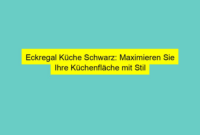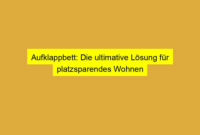Royal Bank Tower Montreal Wikipedia

Montreal S Royal Bank Tower Is Converted Into Crew Coworking Space
Montreal S Royal Bank Tower Is Converted Into Crew Coworking Space
Rbc Set To Close Opulent Montreal Branch That Was Throwback To
Montreal S Royal Bank Tower Is Converted Into Crew Coworking Space
New Cafe To Open In Landmark Old Montreal Royal Bank Tower Eater
Heritage Montreal Inspiraction 11 Cafe Crew Former Royal Bank
Montreal Old Rbc Building 397 Ft 121 M 22 Floors 1928
M14523 Model Of Royal Bank Building Head Office Montreal Qc
My Favorite Architectural Detail Royal Bank Of Canada Ceiling Yelp
Canada Quebec Montreal Royal Bank Building Lobby The New Crew
The Royal Bank Tower Other Quebec Curios
Canada Quebec Montreal Royal Bank Building Exterior Detail
Royal Bank Of Canada Restored As An Event Space Yelp
Former Headquarters Of Royal Bank Picture Of Crew Collective
Should Investors Buy Royal Bank Of Canada Tsx Rbc Stock Before
Royal Bank Abandons Historic 360 St Jacques Building Montreal Gazette
City View Old Montreal Canada 1920 1929
Judy Oliver Turner Photographer
Montreal Canada 14 September 2017 Detail Of The Tour De La
Canada Quebec Montreal Royal Bank Building Lobby Interior Stock
323 View Looking East From Top Royal Bank Building Montreal Qc
Royal Bank Abandons Historic 360 St Jacques Building Montreal Gazette
Montreal Quebec Image Photo Free Trial Bigstock
Royal Bank Building Place Ville Marie Montreal Canada
Canada Quebec Montreal Royal Bank Lobby Stock Photo 264706970
Canada Quebec Montreal Royal Bank Building Lobby The New Crew
Royal Bank Abandons Historic 360 St Jacques Building Montreal Gazette
Canada Quebec Montreal Crew Collective Cafe Former Royal Bank
Canada Quebec Montreal Crew Collective Cafe Former Royal Bank
Canada Quebec Montreal Crew Collective Cafe Former Royal Bank
Aerial Photo Royal Bank Tower Montreal
Canada Quebec Montreal Royal Bank Building Lobby The New Crew
Montreal Quebec Image Photo Free Trial Bigstock
Canada Quebec Montreal Royal Bank Building Lobby The New Crew
File Royal Bank St James Street Montreal Qc 1920 Jpg
Anti Money Laundering Watchdog S Secrecy A Disservice To Canadian
Henri Cleinge Designs Crew Offices And Cafe In Montreal F B
Amazon Com Photo Royal Bank Of Canada Building In Montreal Under
Monday Monuments And Memorials Royal Bank Headquarters Montreal
Royal Bank Tower Seen From A Street Of Old Montreal At Sunset
Historic Montreal Bank Gets High Tech Transformation Ceilings
Poster Royal Bank Branch St Catherine Street Montreal Qc 1911 Quebec
Rbc Looks To Get Smart With Montreal Artificial Intelligence Lab
Monday Monuments And Memorials Royal Bank Headquarters Montreal
Montreal Canada Image Photo Free Trial Bigstock
304 Succursale De La Royal Bank Of Canada A Montreal Banq
Abandoned 1920s Bank Is Transformed Into A Luxurious Coworking Space
Canada Quebec Montreal Royal Bank Building Lobby The New Crew
Royal Bank Of Canada Rbc The Canadian Encyclopedia
Steam Workshop Royal Bank Tower Montreal
Royal Bank Of Scotland Plc V Etridge No 2 Wikipedia
Canada Quebec Montreal Royal Bank Building Lobby Interior Stock
Montreal S Royal Bank Tower Is Converted Into Crew Coworking Space
Aerial Photo Royal Bank Tower Montreal
Royal Bank Of Canada Building In Old Montreal Montreal Canada
Montreal From The Royal Bank Building August 1942 Flickr
Crew Collective Co Working Share Space Montreal Canada The Cool
Historic Montreal Landmark Repurposed As Breathtaking Cafe
Ivanhoe Cambridge Says Co Working Can Help Communities Facing
Alexander Panetta On Twitter Other Thing I Learned During The
Royal Bank Of Canada Wikipedia
File View Looking East From Top Royal Bank Building Montreal Qc
List Of Banks And Credit Unions In Canada Wikipedia
Montreal Pq The Royal Bank Of Canada 5 Jan 2 1920 Ch Lot
Royal Bank Abandons Historic 360 St Jacques Building Montreal Gazette
Henri Cleinge Architecte Adapts Former Royal Bank Space On St
Rbc Royal Bank Banks Credit Unions 5701 Avenue Monkland Notre
Poster View Looking East Top Royal Bank Building Montreal Qc 1927
Royal Bank Building Rue St Jacques Old Montreal Canada Stock Image
Royal Bank Of Canada Building St Jacques Old Montreal Flickr
Canada Quebec Montreal Royal Bank Building Lobby The New Crew
Case Study How Rbc Partnered With Wework To Grow In Key Markets
Royal Bank Tower In Montreal Quebec Canada Stock Photo
View 20319 Royal Bank Branch St Catherine Street Montreal Qc
Rbc Online Archives Page 59 Of 71 Yellow Pages Canada
Henri Cleinge Architecte Adapts Former Royal Bank Space On St
Sinclair Plaza 2160 Montreal Rd Unit 5 7 Richcraft Properties
Main Building Of The Royal Bank Tower In Montreal Quebec Canada
Photo Toronto Downtown Aerial Panorama Looking N Banks Being
2164 Montreal Rd Ottawa On K1j 1g4 Property For Lease On
Royal Bank Montreal Giants Statues Mtlway Com
Royal Bank Picture Of Free Old Montreal Tours Montreal Tripadvisor
Old Royal Bank Building In Montreal History Visit Location
View 11542 Royal Bank Of Canada Cote St Paul Montreal Qc 1911
Royal Bank Of Canada Rbc The Canadian Encyclopedia
Montreal Canada August 13 2017 Rbc Stock Photo Edit Now 1274555284
Canada Quebec Province Montreal Old Montreal Crew Collectif
Rbc Royal Bank 4370 Rue Wellington Verdun Qc
Royal Bank Of Canada Wikipedia
The Royal Bank Of Canada 10 1913 Typed Neill L Pmg Vf 20




